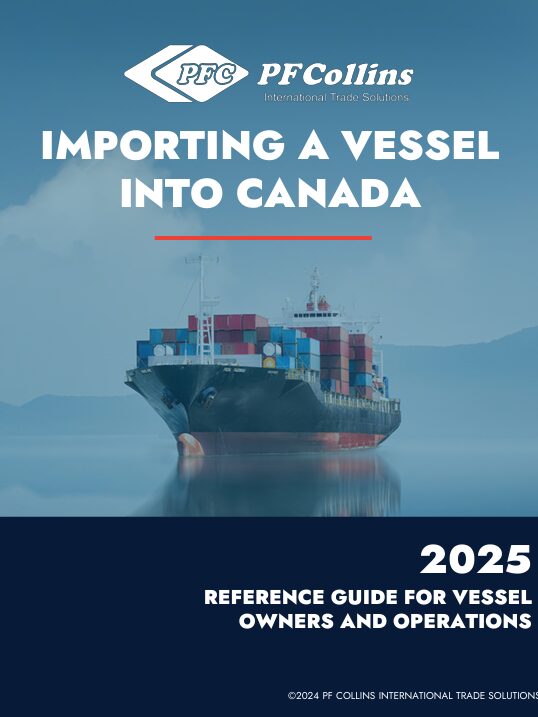CEFTA & Importing Vessels into Canada
The Canada-European Free Trade Association Free Trade Agreement (CEFTA) was first signed in Davos, Switzerland on January 26, 2008 and came into effect July 1, 2009. CEFTA includes the countries of Iceland, Liechtenstein, Norway and Switzerland. As a result of this agreement, duty rates applied to the importation of various vessels into Canada were greatly affected.
Canadian customs duties under Chapter 89 – Ships, boats, and floating structures – of the Harmonized Tariff average 25% under the Most Favoured Nation (MFN) Tariff rate. Vessels that qualify under the rules of origin of CEFTA will benefit from a reduction of these duty rates as, under the agreement, the rate of duty is gradually being reduced on an annual basis until it reaches duty free status in July 2023.
Due to the complexity of CEFTA rules of origin, its distinct tariff classification regulations, as well as an increased frequency of auditing by Canada Border Services Agency (CBSA), it is in an importer’s best interest to obtain an advance ruling on Tariff Classification and Origin Status. A written decision from CBSA on tariff change in advance of the importation may affect the origin qualification and eliminate duty exposure.
PF Collins has been assisting vessel owners and operators for over 50 years! Further information on vessel importations and Canada’s coasting trade regulations can be found in our Guide to Importing Vessels into Canada. Please contact us if you require any further information or assistance.

Importing A Vessel Into Canada
Further information on vessel importations and Canada’s Coasting Trade regulations can be found in our Guide to Importing Vessels into Canada. Or contact us if you require any further assistance!







